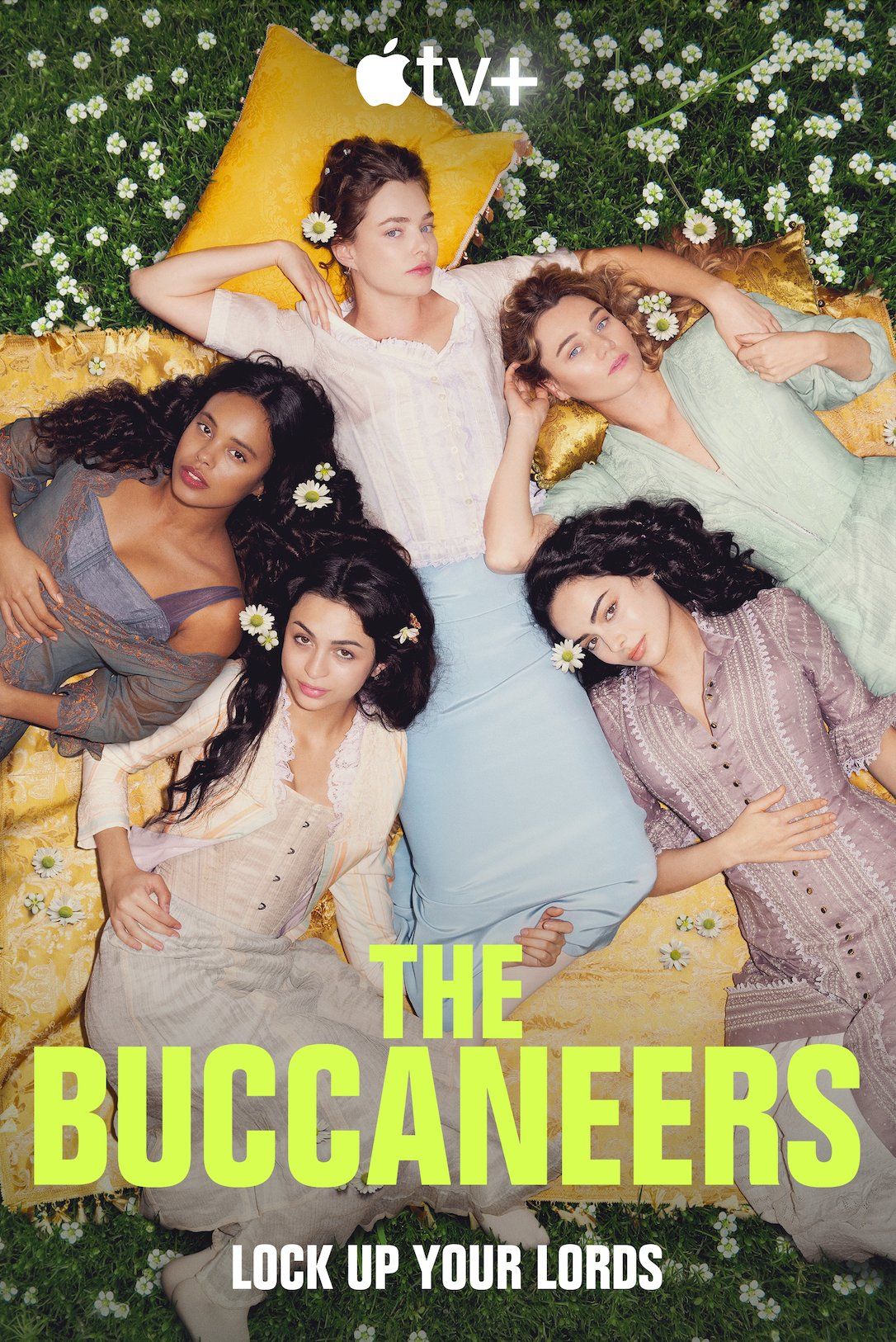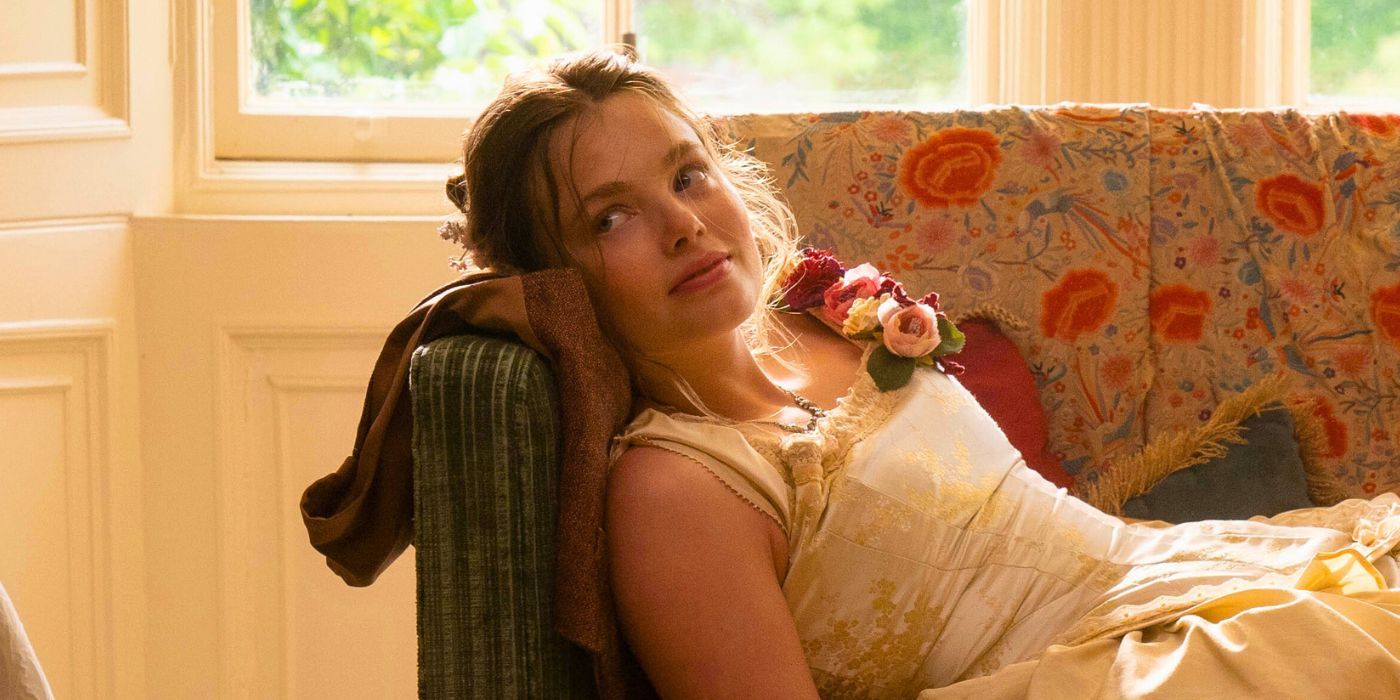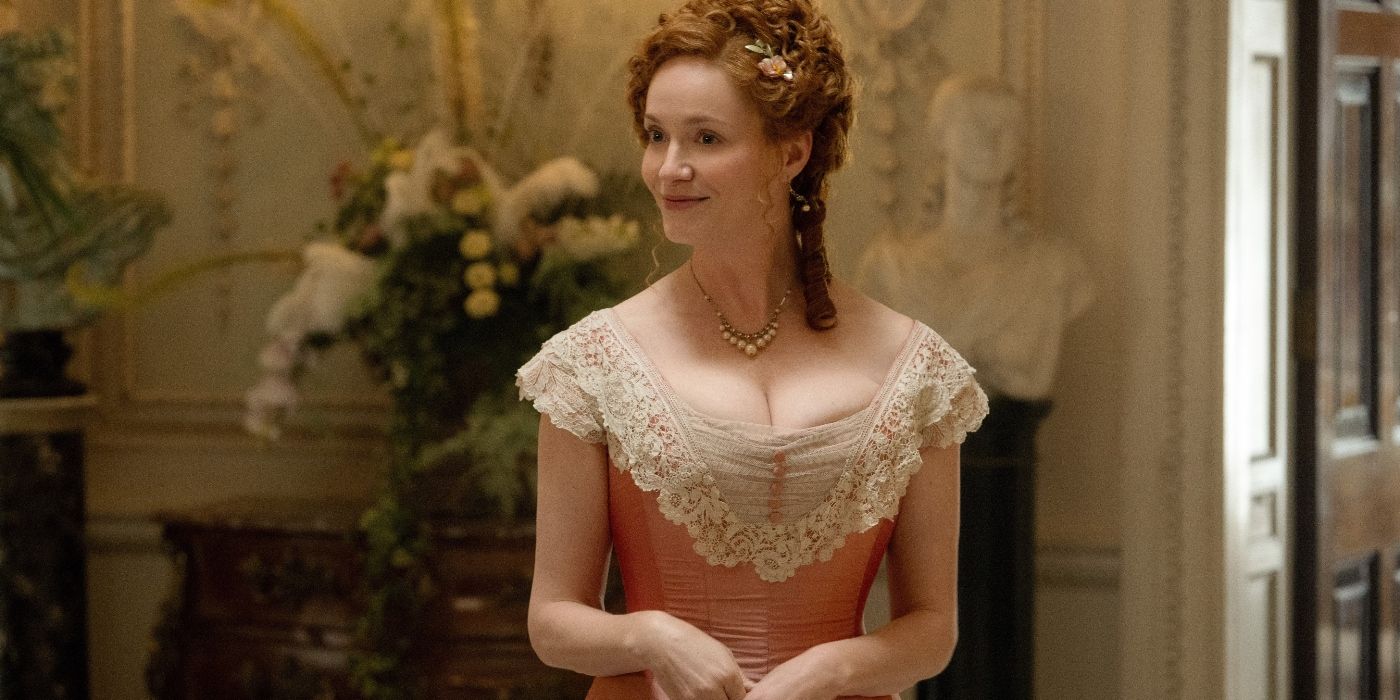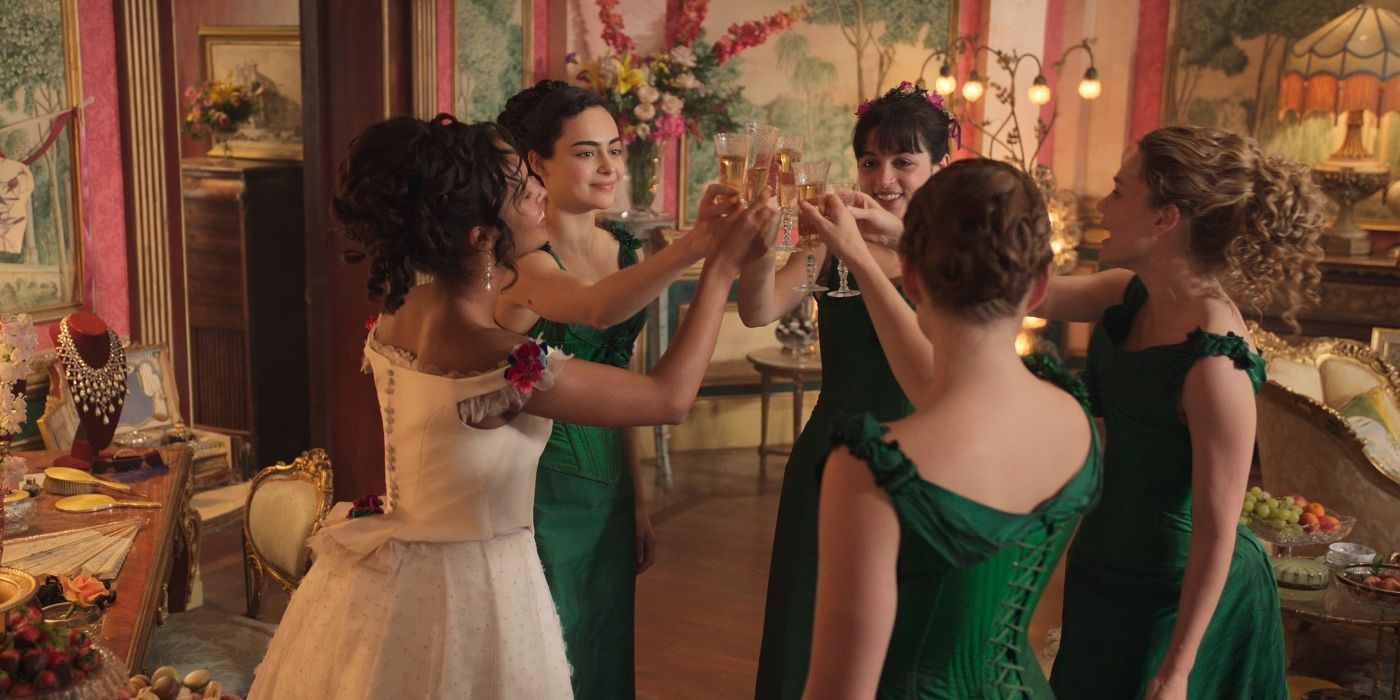The Big Picture
- Apple TV+'s The Buccaneers incorporates anachronistic elements like pop-rock music, setting it apart from traditional period dramas.
- The series explores the harsh realities of marriage and challenges the notion of happy endings.
- The Buccaneers' strengths lie in its portrayal of friendships among the main characters, although these relationships are often strained and fragmented through the season.
While it's not entirely accurate to suggest that period dramas have ever gone out of style, one could probably argue that there's been more of a resurgence in recent years — especially on the small screen. Some of this results from the fact that many works by literature's greatest minds are now in the public domain, leaving them ripe for the picking in terms of modern adaptation. Authors like Charles Dickens and Jane Austen are earning new interpretations of their stories all the time, with Great Expectations developed into a series just this year, while Sanditon became one of PBS Masterpiece's most popular shows during its three seasons, even though it was based on a manuscript that Austen never finished writing. That concept of creating a longer adaptation from an incomplete novel, however, is one that's shared in Apple TV+'s The Buccaneers, which hails from writer Katherine Jakeways and director Susanna White. It's not the first adaptation to tackle Edith Wharton's unfinished narrative; that honor goes to the BBC, where an attempt was initially made back in 1995 with a miniseries starring Carla Guginoand Mira Sorvino, among others. But it does try to breathe new life into the story, although those viewers who enter in expecting Apple TV+'s answer to Bridgerton will find a more melancholy American cousin by comparison.

The Buccaneers
The Buccaneers are the daughters of America’s new rich — beautiful and untameable, despite the best efforts of England’s finest governesses, they are on their way to London to snare themselves an aristocrat, low in funds but high in class, to make a perfect match.
- Release Date
- November 8, 2023
- Main Genre
- Drama
- Genres
- History
- Seasons
- 1
'The Buccaneers' Is All About the Culture Clash
From the very first episode, The Buccaneers makes it clear that it isn't going to be just your average period drama. The trailer for the series, which features music from Olivia Rodrigo, maybe should've been your first clue along those lines, but on the off-chance that you're the type of person who likes to go into a show without seeing a hint of footage beforehand, the series' use of anachronistic, pop-rock female artists is an element that gets incorporated almost immediately and then never lets up throughout.
Each of the main characters parades down a marble staircase in a sequence that feels ripped from an '80s movie, their names billed across the screen in glowing neon letters to the tune of Miya Folick's "What We Wanna." Conchita Closson (Alisha Boe), who we first meet on her wedding day, is the first of the titular Buccaneers to have landed a match — although her stuffy English in-laws aren't thrilled about this once-rebellious party girl now in line to become the next Lady Marable with her impending marriage to Richard (Josh Dylan). Meanwhile, Mabel Elmsworth (Josie Totah) is used to not being seen as any great beauty when standing next to her sister Lizzy (Aubi Ibrag) — but as we soon discover, Mabel hardly has any interest whatsoever in snagging a husband for herself.
Another pair of sisters, Jinny (Imogen Waterhouse) and Nan (Kristine Froseth) St. George, round out the rest of the group, but it's Nan we're meant to pay attention to — even if, by her own admission, she "was never supposed to be the main character," content with letting her friends and sister compete for attention. But, whether she's prepared for it or not, Nan is also the one who ends up in a complicated, messy love triangle that takes up the bulk of the season's drama, as she ultimately becomes torn between the possibility of romance with either Theo, Duke of Tintagel (Guy Remmers) or one of his closest friends, Guy Thwarte (Matthew Broome).
The Gilded Age-set series incorporates more than just one clash of cultures, as each of the girls finds themselves in a position to make an auspicious match — but not in their more familiar stomping grounds of 1870s New York City. Instead, the rest of the unmarried women travel to England — not just to visit Conchita, who's already suffering the growing pains of her new role as a wife, but to find their own husbands too. Compared to the dark and dour space of an English manor house, the Buccaneers are a flurry of color and noise, thundering loudly down staircases and hallways long before they make their presence known. Naturally, their behavior — which is considered bold, brash, and in some cases even rude by the society they're now inhabiting — rubs many characters the wrong way, leading to several instances where it seems some of the girls might be forced to dim their own inner light if it means achieving what they came to England to do in the first place. One of the show's earliest scenes, set at a debutante ball against the backdrop of Taylor Swift and Phoebe Bridgers' "Nothing New," feels like the perfect representation of what these heiresses are up against. Confronted with the archaic system that would see them chosen for their money rather than who they are at the core of their being, how many of them will simply settle for the best possible option because it's what's expected of them, rather than choosing the life they really want?
'The Buccaneers' Is More About the Harsh Realities of Marriage Than a Happily Ever After
Some of The Buccaneers' bleakest themes can be chalked up to Wharton herself. The author never subscribed to the necessity of a happy ending and outright dismissed it as a possibility for many of her stories, one of the reasons why the BBC miniseries' take on The Buccaneers received some flak upon release for diverging to one for its version of Nan. Yet there might be those who come to the Apple TV+ series and aren't aware of just how many pages have been translated from Wharton's original novel to the screen. While this adaptation does feel more defiant to some extent — incorporating a stronger commentary on both race and queerness into the story — it also seems more intent to follow the path that Wharton likely would have chosen for her heroines if she'd had enough time to finish writing.
In the world of The Buccaneers, one can only try for a match that's at least halfway tolerable; marriage is considered as a means to an end rather than the culmination of an exciting and swoony courtship. Even the day-to-day aspects of married life, for some characters, are weighed down by things like hidden affairs, illegitimate children, and physical abuse that first takes place behind closed doors before spilling out in a more public fashion. Not even the older generation is immune from these problems; Nan and Jinny's mother (played by an incandescent Christina Hendricks) is faced with tumult in her own marriage, even as she hopes for better for her daughters. The glitz and glamour of the Gilded Age are tarnished by the heavier emotional weight of the series' major storylines, only a handful of which hint at a conclusion with the slightest glimmer of hope.
'The Buccaneers' Is Best When It Leans Into Its Friendships
At its core, The Buccaneers succeeds most in being a series about a close-knit group of friends, with the show itself becoming that much more brilliant each time these young actresses are all together on-screen. Unfortunately, these instances happen with less frequency throughout the season, as the Buccaneers drift further and further apart from each other as a result of their individual responsibilities. Given that so many of the fictional men in this series would literally rather embrace toxic behavior instead of going to therapy, the female characters are what save The Buccaneers from becoming too distressing, so why does the show split them up so often?
One particular moment, in which Mabel and Lizzy are able to reconnect as sisters and divulge some deep-rooted secrets, happens too late to have any emotional impact on their relationship, especially when the two of them have spent most of the season at a physical distance. The most glaring of missed opportunities, however, happens with Nan and Jinny, where an early revelation of scandal and the subsequent fallout divides them for the bulk of the season — and the longer the sisters go without any form of reconciliation, the more detrimental it feels to their respective stories, especially when Waterhouse and Froseth are so compelling in their shared scenes. Outside of the fragmented sister dynamics, however, one of the best storylines plays out between Mabel and Richard's sister Honoria (a stellar Mia Threapleton), providing a sweet contrast to many of the show's more somber notes. Ultimately, there's the possibility that The Buccaneers' biggest overhanging questions could be answered with a second season, especially given how this one concludes, but given the uptick in limited series these days, any continuation isn't guaranteed.
The Buccaneers isn't going to reside in the same optimistic period drama sphere as shows like Sanditon or Bridgerton, in spite of its bold creative choice to embrace pop music or the countless society parties that see the show's main quintet getting to wear all manner of gorgeous gowns. Romance isn't the main objective, even if the series might flirt with it on occasion by incorporating a range of scenes from hands subtly, illicitly touching to characters falling into each other's arms with passionate abandon. Instead, the finishing touches here are more realistic, and often more cynical, but whether they'll leave a sour taste in the mouth depends entirely on what viewers are hoping to see from the story itself.
Rating: B-
The Buccaneers premieres its first three episodes November 8 on Apple TV+ in the U.S., with new episodes premiering weekly every Wednesday.
Watch on Apple TV+



Comments
Post a Comment